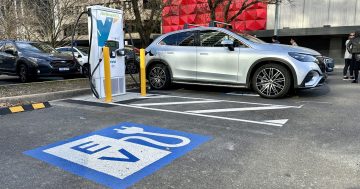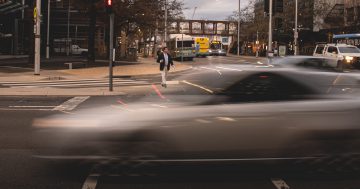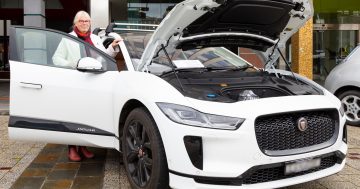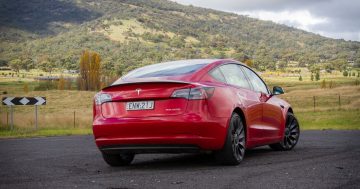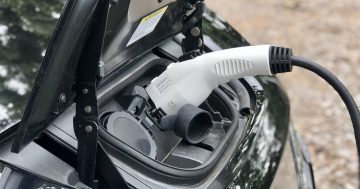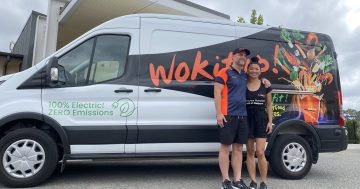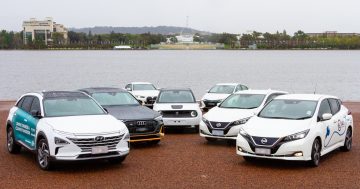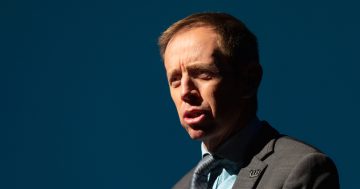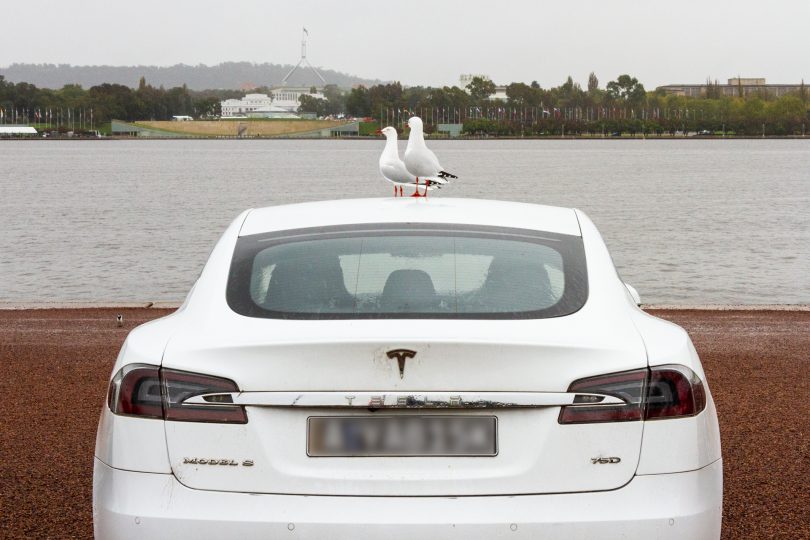
EVs all the way: the ACT Government will set an ambitious target of banning new petrol light vehicles from 2035. Photo: James Coleman.
The Territory Government intends to ban the purchase of new fossil fuel vehicles from 2035 as it announces updated electric vehicle (EV) sales targets.
By 2030, the government wants 80 to 90 per cent of new light vehicles sold to be zero-emission models, with a stricter ban expected to come into force half a decade later.
Minister for Emissions Reduction Shane Rattenbury said the phase-out of internal combustion engine cars would first apply to new light vehicles, including passenger cars, motorcycles and small trucks.
But the finer details of that ban, including whether it will apply to cars being purchased interstate and established in the ACT, are yet to be finalised.
The exact legislative mechanism by which the ban will come into effect will also be worked out in the coming years, Mr Rattenbury said, but the government’s ambitions are now clear.
“Our intent is that from 2035, you will not be able to put a new [petrol light vehicle] on the road,” he explained.
“But the government does not intend to take your car off the road if you’re driving around in an all-petrol vehicle at the start of the year.”
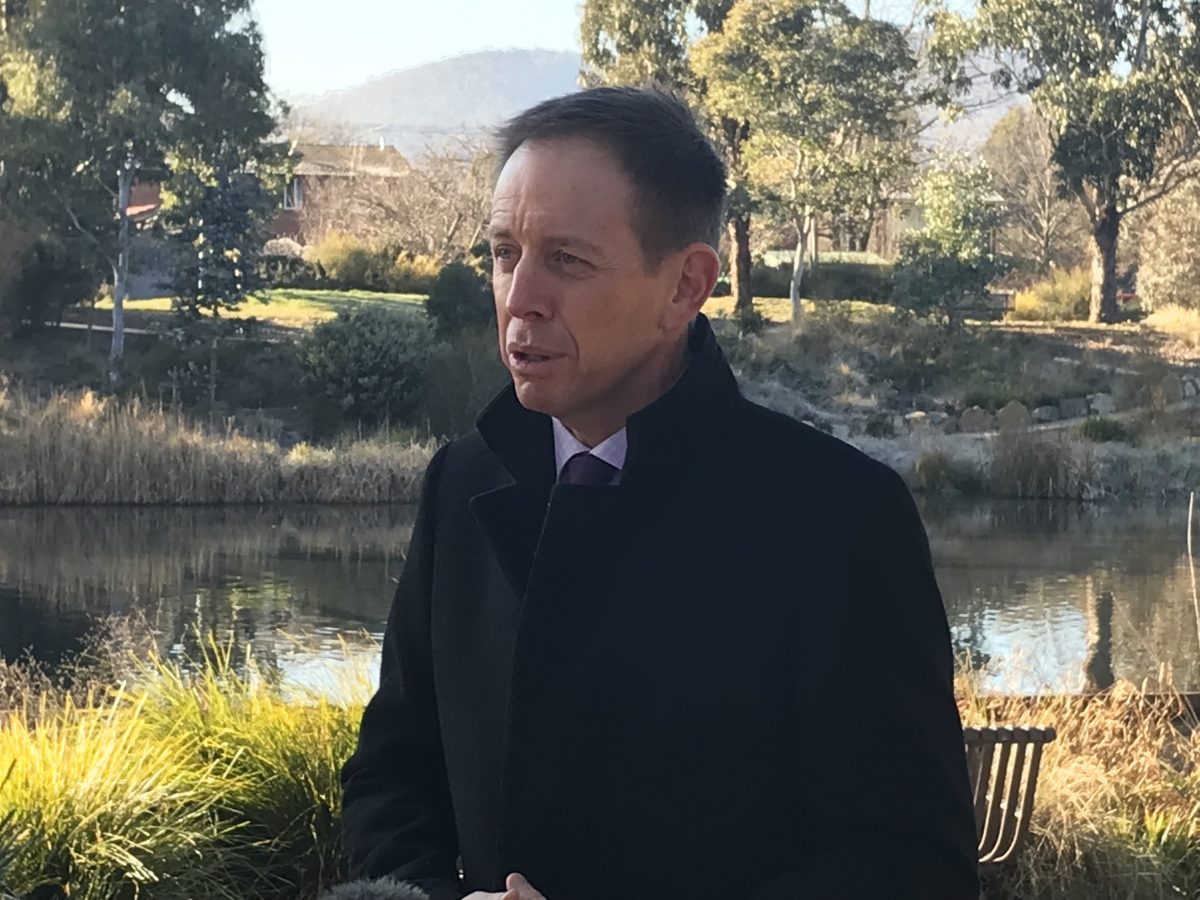
Minister for Emissions Reduction Shane Rattenbury says it’s important the community is given time to prepare for major changes such as these. Photo: Lottie Twyford.
The Emissions Reduction Minister believed it was important to make such an announcement early enough to give the community time to prepare.
“We’re trying to signal where we are going very early so that people have a clear understanding of where the future lies,” Mr Rattenbury said.
He noted the Territory was not alone in intending to move away from petrol cars and new models would become increasingly scarce on the market. Several global car manufacturers have already announced their intention to stop producing petrol cars.
The UK government has plans to ban the sale of new petrol and diesel vehicles from 2030, with hybrids to follow five years later while the European Union earlier this year agreed to draft legislation that would ban the sale of new fossil fuel cars by the year 2035.
Mr Rattenbury said the ACT Government will work alongside interstate governments and the Commonwealth to implement the technical elements of the phase-out.
The complete ACT Zero Emissions Vehicles Strategy 2022-2030 will be released later this week.
That strategy will address what the government has identified as the four key barriers to electric vehicle take-up: affordability, infrastructure/range anxiety, availability and supportive government processes.
The ACT Government has gone out to tender for a $1.9 million roll-out of 50 government-funded electric vehicle charging points. Mr Rattenbury said these locations would be finalised in the coming weeks.
The government estimates up to 1000 public EV chargers will be needed by 2030.
It expects the private sector to deliver the majority of these.
According to the Electric Vehicle Council, electric vehicle take-up in the Territory is happening faster than in the rest of the country.
Sales tripled in the Territory in the last calendar year and EVs made up 5 per cent of all cars purchased.
The ACT offers up to $15,000 in an interest-free loan for people who purchase an electric vehicle, along with incentives including free registration for a period of time.
Mr Rattenbury said the next swathe of affordability initiatives would likely encourage the uptake of second-hand electric vehicles.
Federal Labor made a $200 million election commitment to exempt EVs from import tariffs and fringe benefits taxes to make them more affordable.












